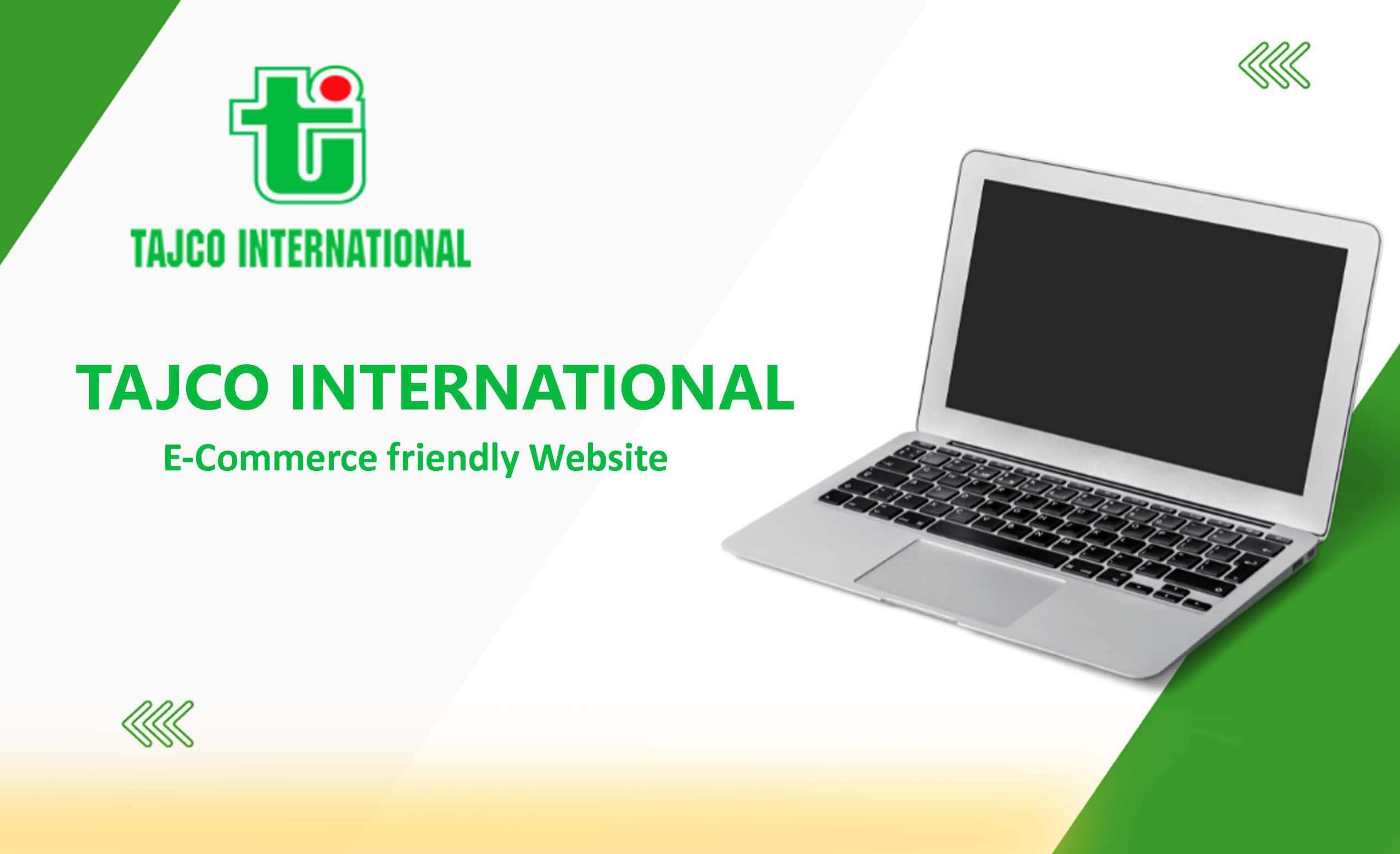
Project Name : Web Portal For Electronic Consumer Item
Project Client : Tajco International
Delivered : June, 2014
Project Category : Commercial
Project URL : http://www.tajco-bd.com/Electronic commerce, commonly known as e-commerce, is a type of industry where buying and selling of product or service is conducted over electronic systems such as the Internet and other computer networks. We can develop e-commerce web application for your organization with any payment gateway, e.g. - PayPal, MasterCard, Visa and more.
An e-commerce website, short for "electronic commerce" website, is an online platform that allows businesses and individuals to buy and sell products or services over the internet. These websites have become increasingly popular in recent years due to their convenience and accessibility.
Details of TAJCO INTERNATIONAL e-commerce website are as follows:
Product Listings: E-commerce websites feature a wide
range of products or services, each with its own detailed listing. These
listings include high-quality images, product descriptions, pricing, and other
relevant information.
Search and Navigation: Users can easily search for products
using search bars and filters. Navigation menus and categories help users find
what they're looking for quickly.
Shopping Cart: Shoppers can add products to a
virtual shopping cart, review their selections, and make adjustments before
proceeding to checkout.
User Accounts: Customers can create accounts to
save their information, track orders, and manage their preferences. Guest
checkout options are typically available for those who prefer not to register.
Secure Payment Processing: E-commerce websites incorporate
secure payment gateways to facilitate transactions. Payment options often
include credit/debit cards, digital wallets (bKash, Nagad, PayPal, MasterCard
& Visa) and other online payment methods.
Reviews and Ratings: Customers can leave reviews and
ratings for products, helping other shoppers make informed decisions.
Product Recommendations: Many e-commerce sites use
algorithms to suggest related or complementary products based on a user's
browsing and purchase history.
Wish list and Favorites: Users can save products they are
interested in for future reference.
Order Tracking: Customers can monitor the status of
their orders in real-time, from processing to shipping and delivery.
Customer Support: E-commerce websites often provide
various customer support options, such as live chat, email, or phone support,
to assist users with inquiries or issues.
Security: Ensuring the security of user data
and transactions is paramount. E-commerce sites implement encryption and other
security measures to protect sensitive information.
Shipping and Delivery Information: Information about shipping options,
delivery times, and associated costs is provided during the checkout process.
Return and Refund Policies: E-commerce websites typically have
clear return and refund policies to address customer concerns in case they are
not satisfied with their purchases.
Mobile Responsiveness: Many e-commerce websites are
designed to be mobile-friendly, ensuring a seamless shopping experience on
smartphones and tablets.
Marketing and Promotions: E-commerce sites often run
marketing campaigns, offer discounts, and send newsletters to engage and retain
customers.
Inventory Management: Businesses use Backend systems to manage
inventory levels and update product availability in real-time.
Analytics: E-commerce websites collect data on
user behavior, sales, and site performance, which can be analyzed to make
informed business decisions.
E-commerce websites provide a digital marketplace where buyers and sellers can interact and conduct transactions online. They offer a convenient and efficient way for businesses to reach a global audience and for consumers to shop for a wide range of products and services from the comfort of their homes or on the go.